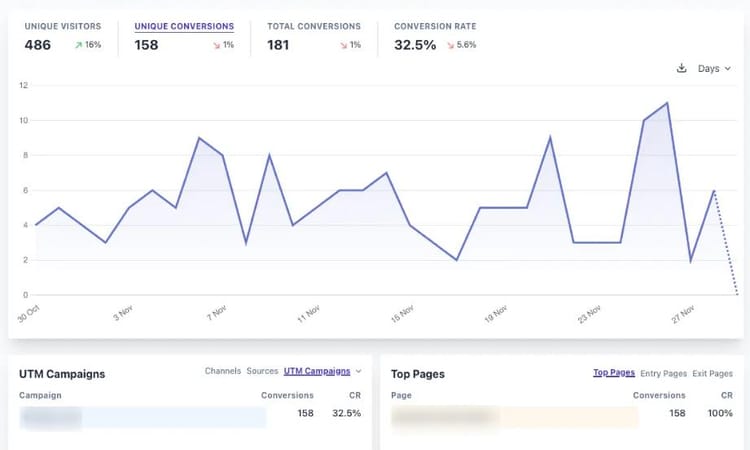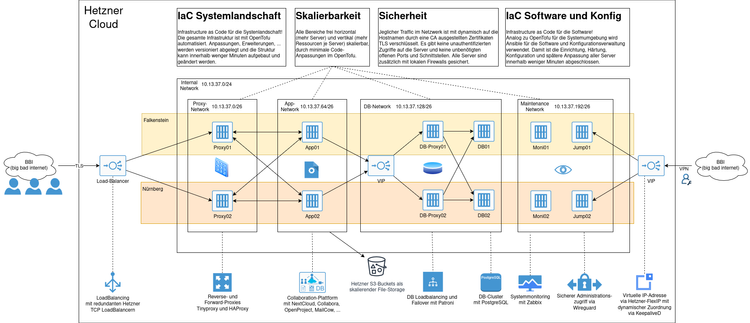Hacked? These Websites Will Tell You If Your Data Has Been Leaked!

In my last post, I discussed why password managers are an essential tool for increased security. However, even the best password is of little use if it has already appeared in a data leak. Therefore, today we'll look at how you can check if your credentials have been compromised and what you can do to protect yourself.
In today's digital world, data breaches occur frequently – be it through security vulnerabilities, phishing attacks, or insider threats. Not only passwords are compromised, but often email addresses, phone numbers, and other sensitive information as well.
At Virtimo AG, we place the highest value on security, hence we use password managers extensively and access is granularly separated. The exchange of sensitive data is conducted through tools that support Burn-After-Reading, encrypting data and storing it for only a very brief period. This prevents our most sensitive data from falling into the wrong hands due to a leak.
But where can you personally check if your data has been affected by a leak? Today, I will introduce you to some important leak checkers
Leak-Checkers
Have I Been Pwned (HIBP)
One of the most well-known platforms is Have I Been Pwned, operated by security researcher Troy Hunt. You can simply enter your email address or phone number and check if they have appeared in known leaks. HIBP also offers a notification service that alerts you if your data appears in future leaks.
Dehashed
Dehashed goes a step further: Besides email addresses, you can also search for usernames, IP addresses, or hashes. However, the platform requires registration and offers paid premium features.
LeakCheck
LeakCheck is another option with a large database of compromised information. Users can check for free if their data is included in a leak, although more detailed results require a paid account.
HPI Identity Leak Checker
The Hasso Plattner Institute offers a reliable, privacy-friendly service from Germany with its Identity Leak Checker. After entering an email address, you receive feedback via email on whether and where your data has appeared in known leaks.
Firefox Monitor
Mozilla’s Firefox Monitor offers a service similar to HIBP. Those with a Firefox account can automatically be notified about new leaks.
Pwned Passwords
In addition to HIBP, Troy Hunt also offers Pwned Passwords, where you can check if a password has already appeared in known data breaches. The database can also be used locally to validate passwords without direct online access.
Use Trusted Services Only!
It's crucial to only use trusted and reputable services when checking if your information has been compromised. Always verify the legitimacy of the website before entering any personal data, such as your email address, phone number, or passwords. While the platforms I mentioned above are known for their reliability and security, be wary of entering your sensitive information on unknown or untrusted websites, as this can lead to further security risks. Protecting your data starts with ensuring that you are interacting with secure and respected platforms.
Integration into Password Managers
Many modern password managers now include features to check for leaked passwords directly within their applications:
- KeePass: With plugins like HIBPOfflineCheck, KeePass can be used to check passwords offline against the HIBP database without sending data to the internet.
- 1Password: Uses the “Watchtower” feature, which compares compromised passwords with HIBP.
- Bitwarden: Offers an in-built password leak checker through “Bitwarden Vault Health Reports.”
- Dashlane: Integrates a Dark Web monitoring service that alerts users to compromised passwords.
- LastPass: Features a Security Challenge that alerts users to weak or compromised passwords.
Many of these password managers also offer browser plugins that automatically warn you if you are using an insecure or previously leaked combination.
What to Do If You Are Affected?
If you find out that your data has appeared in a leak, you should take immediate action:
- Change passwords: Use strong, unique passwords and employ a password manager.
- Activate Two-Factor Authentication (2FA): This significantly complicates access to your accounts for attackers. In my next post, I will go into more detail on why 2FA is so important and what methods are available.
- Stay skeptical: Be cautious of unexpected emails or calls asking for personal data – scammers use leaked info for targeted attacks.
- Regularly check: Sign up for a notification service to be alerted about future leaks.
Conclusion
Leaks are unfortunately a common occurrence, but with the right tools and measures, you can better protect yourself! Are you already using one of these services? Or do you know of other platforms worth recommending? Share your thoughts in the comments! 🔒💡






Member discussion